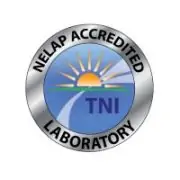Petrochemical Testing Services
Teklab’s petrochemical testing services are essential to ensure the quality, performance, safety, and compliance of petrochemical products. These services involve a variety of tests on raw materials, intermediates, and finished products in the petrochemical industry, which includes chemicals derived from petroleum and natural gas. The testing helps manufacturers, distributors, and consumers understand the chemical composition, physical properties, and performance characteristics of petrochemical products.
- Quality Control: Testing ensures that petrochemical products meet stringent industry standards and specifications. It helps detect impurities, deviations from formula, or inconsistencies in product composition, which could affect performance or safety.
- Regulatory Compliance: Governments and industry organizations have specific regulations regarding petrochemical products, including environmental and safety standards. Testing services ensure that products comply with these regulations, avoiding legal issues or penalties.
- Safety Assurance: Many petrochemical products are hazardous and can pose risks during manufacturing, transportation, or usage. Testing identifies any dangerous substances, reactive properties, or potential risks, allowing manufacturers to take preventive measures.
- Performance Testing: Petrochemical products are often used in critical applications, such as fuels, lubricants, plastics, and adhesives. Performance testing ensures that these products perform reliably under expected conditions, contributing to efficiency and durability.
- Environmental Protection: Petrochemical testing services play a key role in environmental sustainability. By assessing emissions, effluents, and other environmental impacts, these services help minimize the ecological footprint of petrochemical operations.
- Material Certification: Many industries, including automotive, aerospace, and construction, require certified materials for their products. Testing services provide certifications that validate the purity and properties of petrochemical products, ensuring their suitability for specific applications.
- Innovation and Development: For research and development in the petrochemical sector, testing services offer critical data to develop new products, refine existing formulas, and improve manufacturing processes. These tests enable companies to bring innovative and efficient products to market.
Common Tests in Petrochemical Services:
- Elemental Analysis: Determines the chemical composition of samples.
- Physical Properties Testing: Assesses characteristics like viscosity, density, and melting point.
- Corrosion Testing: Evaluates the resistance of petrochemical products to corrosion and wear.
- Gas Chromatography (GC) and Mass Spectrometry (MS): Identifies and quantifies various chemical compounds in the samples.
- Spectroscopy: Used for detailed molecular analysis and to detect trace elements.
- Thermal Analysis: Measures changes in physical and chemical properties as a function of temperature.
Testing and analysis of chemicals and petrochemicals requires different analytical instrument platforms to identify, characterize, and assess the quality of raw materials, in-process streams, and finished products.
Teklab offers petrochemical testing services for the following methods:
Industries Benefiting from Petrochemical Testing:
- Oil & Gas
- Chemical Manufacturing
- Plastics & Polymers
- Pharmaceuticals
- Automotive
- Construction Materials
The Role of ASTM Standards in the Oil and Gas Industry
ASTM standards are integral to the oil and gas sector, offering a comprehensive framework for testing and analysis. These standards encompass a wide range of methods used to ensure accuracy, reliability, and consistency in operations across the industry.
For example, ASTM test methods are commonly employed to analyze chemical compositions, such as determining the concentrations of sulfur, nickel, and other trace elements in fuels, crude oils, and other hydrocarbons. This data is critical for assessing product quality, environmental compliance, and processing requirements.
Beyond chemical analysis, ASTM methods extend to the measurement of physical properties that influence performance and handling. Properties like viscosity, density, and flash point are routinely evaluated to optimize product formulations, ensure safety in transport and storage, and meet industry regulations.
Recognized globally for their precision, ASTM standards are trusted benchmarks in laboratories and facilities worldwide. They play a pivotal role in regulating the oil and gas industry, ensuring uniformity in testing procedures, facilitating international trade, and supporting innovation through consistent and dependable data.
In an industry as complex and high-stakes as oil and gas, ASTM standards not only uphold quality but also provide the foundation for critical decision-making, from exploration to production and beyond.




